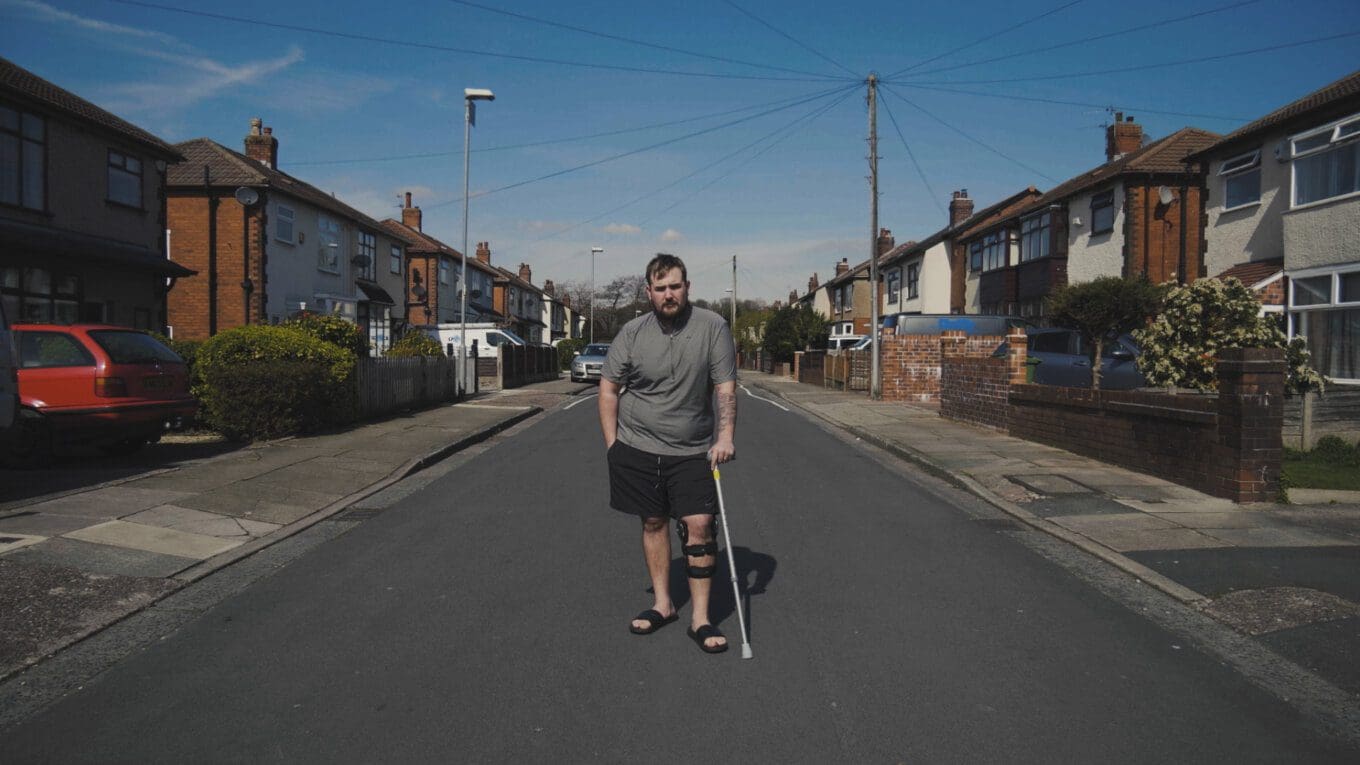The Cost of Living examines claims made by UBI’s supporters and detractors and includes interviews with welfare rights adviser Barb Jacobson, the late anthropologist David Graeber and environmental activist George Monbiot.
By Sam Gregory
Since the start of the pandemic, the movement for a Universal Basic Income – a regular payment given to everyone regardless of income, wealth or employment status – has grown immeasurably. In the UK, the UBI Lab Network, a project by Now Then publisher Opus, has been a leading voice, arguing that a UBI could end absolute poverty forever and ensure economic security for everyone.
But critics of basic income, including the Conservatives, say the idea is too expensive and that welfare spending should be targeted to those most in need through existing systems like Universal Credit.
A new documentary, The Cost of Living, examines claims made by UBI’s supporters and detractors, and includes interviews with welfare rights adviser Barb Jacobson, the late anthropologist David Graeber and environmental activist George Monbiot.
Ahead of a free screening on 1 February, we spoke to filmmakers Sean Blacknell and Wayne Walsh of Gadfly Productions to find out what inspired the film and why they believe basic income is an idea whose time has come.
Tell us about the film and how it came about.
Sean: We came across the idea of UBI as an answer to job obsolescence during the second leg of filming for our first film, The Future of Work and Death. The more we researched it, the more we realised it’s not some idealistic silicon bubble fix. But we couldn’t fit UBI into The Future of Work and Death, so decided it to be the subject of our next film.
Wayne: Due to the fact that UBI came up so often as a possible answer to job obsolescence and what Guy Standing calls the precariat, we decided that it would make a much better stand-alone companion piece as opposed to being crowbarred into the work section of The Future of Work and Death.
What are the most compelling arguments for a Basic Income?
Sean: That as a poverty trap prevention scheme it would most likely engender a culture of much more equal opportunity.
Wayne: I find the evidence on the current levels of inequality and the direction in which we are heading with automation the best argument. It almost seems obvious that a basic income will be required in order to keep the system flowing as it currently works. It would be difficult to displace such huge amounts of workers and expect growth to continue. Though I do believe it is only a piece of the puzzle and something like universal basic services would need to be considered too.
When do you think automation will start to have a major impact on the UK job market?
Sean: Oxford economist Carl Frey – an expert we point to in the first film – says 35% of jobs in the UK are at high risk of automation by 2030. OECD say 10%. So if we split the difference, it’s fair to assume disruption isn’t too far away. Eventually though most jobs will be bested by computerisation, things could look pretty grim in 30 years if we don’t get a grip of it.
Wayne: I would go off the same stats as Sean here but I would add that I think Covid will actually speed it up for some sectors. Retail, for example, will take a big hit as more people are becoming accustomed to shopping online.
Has the pandemic changed the case for UBI?
Sean: I think so yeah. I think more people are receptive to the idea now. But, as a bit of a pessimist, I’d imagine things would still have to get a lot worse for a lot more [people] before there’s any meaningful nationwide legislation or alternatives. I’m a hopeful pessimist, though.
Wayne:
The pandemic has revealed just how little people have to rely on during hard times. I’m hopeful that it has also highlighted the need for progressive taxation on those with great wealth in order to fund these policies.
Some critics say UBI is a nice idea but a non-starter because it’s unaffordable.
Sean: There seems to be a consensus from both the left and the right that it is affordable. It’s just a matter of political will. As David Graeber says in the film, “Where do you think they found the money for quantitative easing? They just made it up.”
Wayne: Those that say it’s unaffordable are not taking into account a more progressive tax system on the wealthy. I’m not advocating equality of outcome when I say that, just a lower level of inequality. History has shown time and time again that great inequality destabilises societies. Hopefully this time we will have the foresight to implement these kinds of things rather than let the whole thing crumble under a system of greed.
_____
To see original article please visit: https://nowthenmagazine.com/articles/the-cost-of-living





















